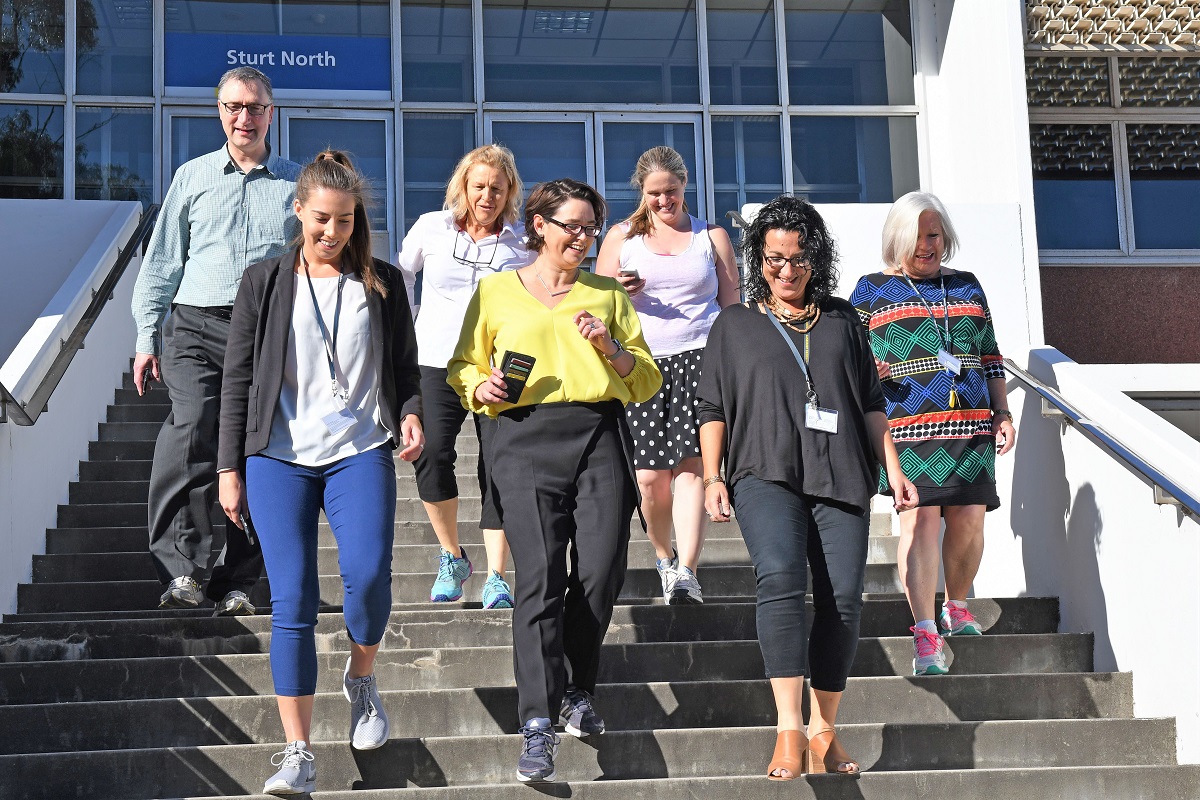
With scenic walking trails linking the University’s three hubs and a unique lake and forest environment, Flinders staff are in a prime position to increase their incidental exercise. Several staff members embraced the Heart Foundation’s 2018 Heart Week theme ‘Don’t get the sits’ last week, donning their trainers to improve heart health.
The goal of Heart Week is to shine a light on heart health and increase both awareness and activity levels. The 2018 event, which ran from 29 April to 6 May 2018, focused on addressing Australians’ increasingly sedentary lifestyle, which is placing people at risk of developing heart disease and other serious illnesses.
Physical activity helps to keep the heart strong, with current recommendations suggesting a minimum of 30 minutes each day – although any movement is better than nothing. Walking for just 30 minutes a day can lower the risk of heart disease, stroke and diabetes by 30% to 40%, together with helping to reduce blood pressure and improve sleep quality.
A major barrier to physical activity is simply sitting too much.
With today’s busy lifestyle, many people are attracted to regular lunch-time walks or incidental walking as an efficient way to ramp up their health. An extra flight of stairs, corridor lap or even occasional midday stroll can help to create healthier bodies and minds – and help spread Flinders’ healthy workplace culture!
How is Australia tracking?
The Heart Foundation’s Australia’s physical activity report card 2018 notes that:
- Australia is an inactive nation and would fail its physical activity report card – more than half of Australians (52 per cent) are not active enough.
- The older Australians get, the more inactive they become.
- Almost two in three (63 per cent) of Australian adults are overweight or obese.
- One in four (25 per cent) of Australian children are overweight or obese.
- Around the world physical inactivity accounts for more than five million deaths each year.
- In Australia, approximately 5200 deaths every year are attributable to physical inactivity.

